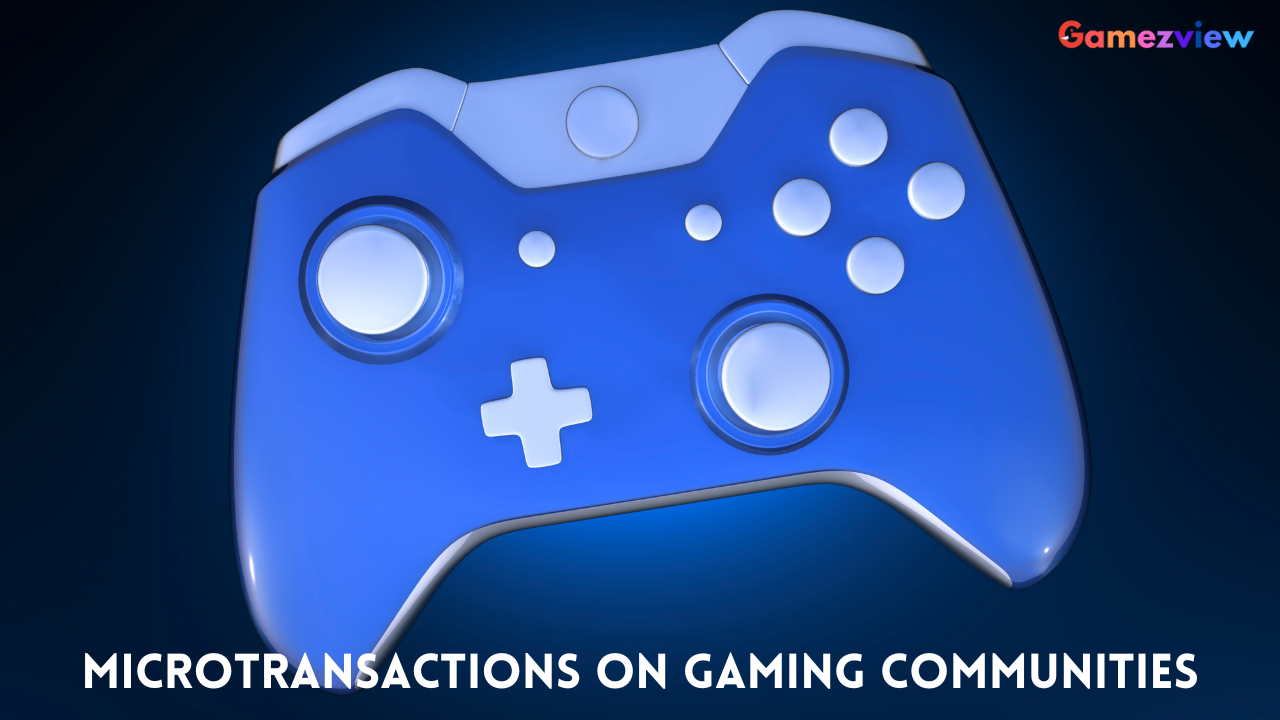Microtransactions have become a ubiquitous feature in modern video games, revolutionizing the traditional gaming experience and introducing new dynamics into gaming communities. In this comprehensive analysis, we delve into the multifaceted impact of microtransactions on gaming communities, examining their financial implications, psychological effects on players, social dynamics within gaming ecosystems, regulatory measures, and future trends.
Microtransactions, a term coined in the realm of gaming, refer to small, often optional purchases made within a game, typically for virtual goods or in-game currency. These transactions can range from purchasing cosmetic items to acquiring gameplay enhancements, altering the player’s experience and progression within the game.
Types of Microtransactions
Cosmetic Items: One of the most common types of microtransactions involves the purchase of purely aesthetic items, such as skins, costumes, or weapon designs. These items do not impact gameplay but allow players to personalize their gaming experience and express themselves within the virtual world.
Gameplay Enhancements: Some microtransactions offer tangible advantages or boosts within the game, such as unlocking powerful weapons, additional levels, or experience points. While these enhancements can provide a competitive edge, they often raise concerns about fairness and balance within multiplayer environments.
Loot Boxes and Chance-Based Mechanisms: Loot boxes, a controversial form of microtransaction, offer players the chance to obtain randomized rewards, ranging from common items to rare and valuable prizes. Critics argue that loot box mechanics resemble gambling and can lead to addictive behaviours, especially among younger players.
Financial Impact on the Gaming Industry
The introduction of microtransactions has transformed the gaming industry’s revenue model, providing developers and publishers with alternative streams of income beyond traditional game sales. According to industry reports, microtransactions have emerged as a significant source of revenue, accounting for a substantial portion of overall game profits.
Psychological Effects on Players
Microtransactions leverage psychological principles to encourage player engagement and spending. Through compulsion loops, reward mechanisms, and the illusion of progress, microtransactions stimulate players’ desire to invest time and money into the game, fostering a sense of accomplishment and satisfaction.
Social Dynamics within Gaming Communities
The proliferation of microtransactions has introduced economic disparities and in-game inequality within gaming communities. Players who can afford to purchase premium items or enhancements may enjoy advantages over others, leading to friction and resentment among peers. Community response to microtransactions varies, with some embracing the convenience and customization they offer, while others criticize their impact on game balance and fairness.
Regulatory Measures and Controversies
Microtransactions have sparked numerous controversies and regulatory debates, particularly regarding their potential to exploit vulnerable players and promote gambling-like behaviours. Governments and regulatory bodies worldwide have intervened to address these concerns, implementing legal frameworks and guidelines to ensure consumer protection and responsible gaming practices.
Case Studies and Examples
Examining real-world examples of microtransaction implementation provides valuable insights into their effectiveness and impact on gaming communities. While some games have successfully integrated microtransactions as a sustainable revenue model without compromising player experience, others have faced backlash and negative repercussions, highlighting the importance of ethical considerations and player feedback.
Strategies for Ethical Implementation
To mitigate the negative effects of microtransactions, developers and publishers must prioritize transparency, fairness, and player welfare. Implementing ethical monetization practices, such as disclosing odds in loot boxes, offering value-driven purchases, and avoiding pay-to-win mechanics, can foster trust and goodwill within the gaming community.
Community Engagement and Communication
Effective communication and engagement with players are essential for building trust and fostering a positive relationship between developers and the gaming community. Establishing feedback mechanisms, listening to player concerns, and responding promptly to feedback can enhance transparency and accountability, ultimately strengthening player loyalty and satisfaction.
Future Trends and Innovations
As technology continues to evolve, so too will the landscape of microtransactions and gaming monetization models. Emerging trends such as blockchain-based ownership, subscription services, and virtual economies hold the potential to reshape the way players interact with games and consume digital content, paving the way for new opportunities and challenges in the gaming industry.
Cultural and Regional Variances
The acceptance and regulation of microtransactions vary significantly across cultures and regions, reflecting diverse attitudes towards gaming and consumer spending. Understanding these cultural nuances and legal frameworks is crucial for developers and publishers seeking to navigate global markets and tailor their monetization strategies accordingly.
Competitive Gaming and Esports Landscape
In the realm of competitive gaming and esports, microtransactions play a unique role in shaping the ecosystem. While microtransactions can provide additional revenue streams for esports organizations and players, they also raise concerns about competitive integrity and fairness, as pay-to-win mechanics may undermine the skill-based nature of competitive gaming.
Alternative Revenue Models
In addition to microtransactions, developers have explored alternative revenue models to sustainably monetize their games. Crowdfunding, patronage platforms, advertisements, and pay-what-you-want systems offer alternative approaches to monetization, allowing developers to diversify their revenue streams and cater to different player preferences.
Ethical Considerations in Game Design
Game developers bear a responsibility to prioritize player well-being and ethical game design principles. By adopting player-centric design approaches, focusing on long-term sustainability, and preserving gameplay integrity, developers can create enriching gaming experiences that prioritize player satisfaction and enjoyment over short-term monetization goals.
The impact of microtransactions on gaming communities is a multifaceted issue that warrants careful consideration and analysis. While microtransactions have undoubtedly reshaped the gaming landscape, their ethical implications, social dynamics, and long-term effects on player engagement and satisfaction remain subjects of ongoing debate and scrutiny. By fostering transparency, accountability, and ethical design practices, developers can create a gaming ecosystem that balances commercial viability with player welfare, ensuring a sustainable and enjoyable experience for gamers worldwide.






